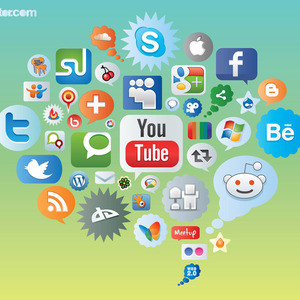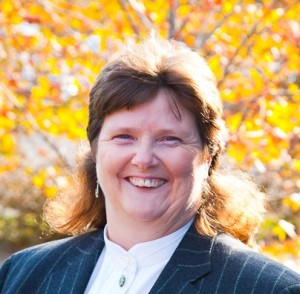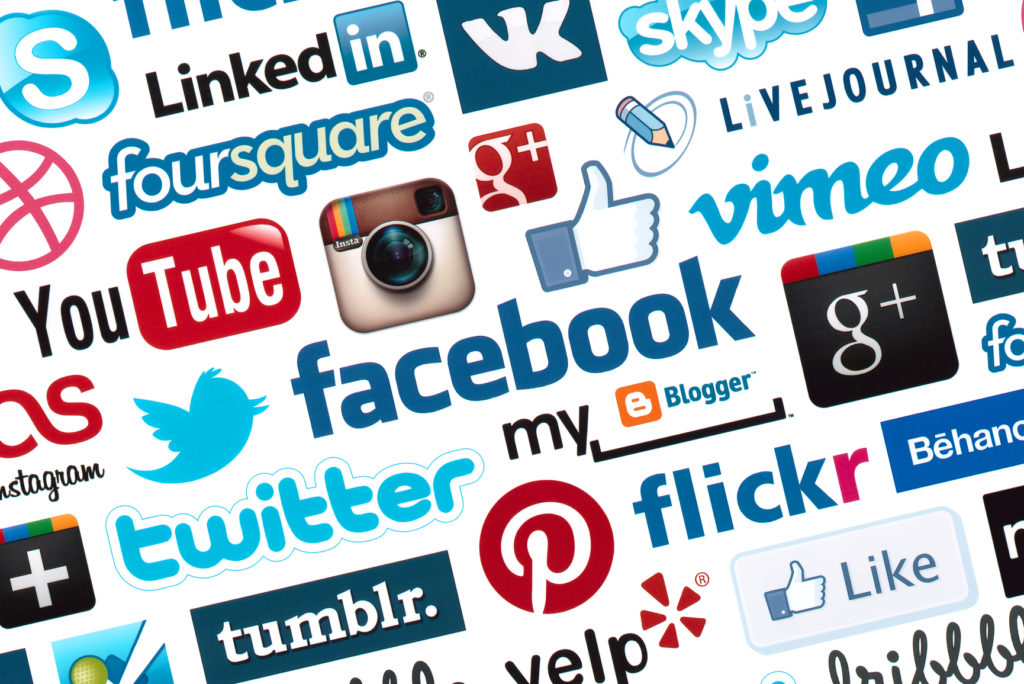A guest post by Holly Dawn Hewlett.
 Unless you have been living under a rock for the last decade, you have some knowledge of Facebook, Twitter, Pinterest, Google+, LinkedIn, YouTube and Instagram. The question is, do you understand the value of Social Media to your success? I don’t care what genre, what topic, what country, what age you are…if you want your work seen, and checks in your bank account…then you need to embrace Social Media. And why not? IT’S FREE!!!
Unless you have been living under a rock for the last decade, you have some knowledge of Facebook, Twitter, Pinterest, Google+, LinkedIn, YouTube and Instagram. The question is, do you understand the value of Social Media to your success? I don’t care what genre, what topic, what country, what age you are…if you want your work seen, and checks in your bank account…then you need to embrace Social Media. And why not? IT’S FREE!!!
So, I want you to Google yourself…now check those entries…are they really you?
Now I want you to Google, Holly Dawn Hewlett, Winchester, Va. Yes, ALL of those entries on the first THREE pages are me! What does that mean? When someone is looking for me, I have 3x the chance of them finding me than you. Why is this important? Because the way to get on the first page of Google is to have good quality content. The way to have good quality content is to have work on every channel you can in the digital world.
I can hear you now, here comes what I call “The Writers’ Soliloquy”
I don’t have time
I have family, friends and a community to buy my work
I write serious prose/poetry and I am not going to peddle it on Social Media
Shakespeare, King, Koontz, and Sandberg didn’t need Social Media!
All of the above statements are true…and false. The reason you don’t have time is you have not learned to leverage your time. You run around trying to catch every opportunity to show your work. Marketing studies show that the average person actually knows about 420-450 people and is acquainted with 2200-2500 people. On a good day only 30-40% of those will actually buy your work. I don’t care if you write the greatest novel that has ever been written, if no one sees it then no one buys it and you are a talented, broke writer. Speaking of Shakespeare, he is THE most downloaded author in the world, to the tune of 2-4 Billion dollars a year….Yes, that is BILLIONS………..
Still think you don’t need Social Media?
Lets’ look at how Social Media can help you. First, some hard learned lessons:
The Digital World is fast, furious and forever. Keep your personal life and writer life separate. The digital world is not secure, you have to use common sense. I keep a note book with all my accounts and passwords separate so that if someone gets into one of my accounts, they can’t get into my personal life, ie: my bank account. Yes, your fans will want to know all there is to know about you, which is a blessing. Establish boundaries now so you are not in danger later. Even as good as I am, I have made mistakes. You’re at an event and hand out your personal # or email…when those people contact me, I redirect them to my public info. If they continue to use my private info…I block them. Don’t fall for the crap that you have to be accessible to all people. Stephen King and Anne Rice have had long lucrative careers being private people.
Now to nuts and bolts.
Social Media is NOT a retail store, it takes time to build a reputation. You need to be engaging and patient. The days of sending out sales emails and ads are gone. Today’s customer is engaged, educated, and discerning. They still want fast service, but they will have googled you before you ever hear from them.
A basic Social Media set up for an author is: LinkedIn, Facebook, Pinterest or Instagram, a blog, a YouTube Channel and Twitter.
The Golden Rule: Good Content, Good Content, Good Content!! Post at least once a week on some of your sites. Connect with the people in your field who are seen as experts. Comment on others’ content. If you are referencing anything…make sure you say so!! It is a digital world, but lawsuits are very real!!! Be real, Be you!
LinkedIn…is your professional page. This is the place you act your best. Yes, you can express your opinion, but always think of yourself sitting in a board room. Linked In is where all the powerful and successful people of your field are. As you establish yourself, you will find some of the experts of your field will wind up connecting with you. This is the place for intellectual discussions. Be studious about who you connect to, you never know who knows who.
Facebook…You will have a personal page which is connected to a Fan Page. Your Fan Page is the place to casually engage your audience. This is the place for all the events of your public life, to have fun, within reason. Remember…the digital world is forever. Find something that you are passionate about that is relevant to your work. I am an Eco Warrior, so my fan page is all about eco living around the world, from schools that are using public space to grow gardens to the latest technological advancements in solar, wind, and geothermal.
Pinterest or Instagram…These are visual based sites. Depending on your personality, the one you choose is up to your taste or engagement. Instagram is like Twitter in that you can send something out to all your followers. Pinterest is like having a limitless portfolio. Visual is the largest growing segment of interaction in the world. The trick with these sites is a conversation. Think: “How do I show people what my work is about” If you visit my Pinterest page, I post how my life is affected by what I do. I post ALL my videos and all the things I am passionate about.
Your Blog…Why have a blog? Well, all those Social Media sites have rules, regulations, and space limits. A blog is the place that you are free to just be who you are. The value of a blog is that YOU control it. It is a place where your most loyal customers will come to have a more intimate conversation with you. It is also the place where you will make money in the future from those loyal customers!! I have a blog on Empower Network, full disclosure…this is another revenue source for me, so yes, I will make a commission if you set up your blog through my link. Go check it out: http://unapologeticjourney.empowernetwork.com/
YouTube…If you have a gmail account, You have a YouTube Channel! As a writer, you will be asked to do readings. A great way to interact with your audience is through videos!! YouTube has a very easy download and edit template that is sweet! Make sure you go through ALL the tabs on your first few videos so it becomes second nature. You will thank me! Finally, ALWAYS MONETIZE YOUR VIDEOS!! Monetizing a video means that you give YouTube the permission to run those ads you see across videos you already watch. There is no sense in turning down free money! How much money? In 2012, YouTube made 2.4 Billion!! 40% of that went to all the people who monetized their videos. Part of monetizing your videos is to make sure you put true and informative titles. AND, if you cuss like I do, you always put that in the description!!
Twitter…This is the place you interact with your audience in real time with 140 character sentences, which are called tweets. Twitter is the place to do media blasts that let folks know you have a new book or an appearance somewhere. This is a great place to have short sweet fast interactions with your fans. Learn the lingo and you will be a twitter master!!
At this point, you are probably feeling overwhelmed, remember what I said about leveraging your time? Take a breath! I got you covered.
The final steps:
Continuity!! Pick a name and use it for ALL of these accounts! If you have not gone to someplace like GoDaddy and registered your “Domain” name, then go do that. Use your whole name, this sets you apart. If you want to be creative, think before you pick a name. Make sure it is relevant! Nothing worse than hearing about how your whole online image does not match what the customer sees when they see your name…..forever.
Set up one or two accounts at a time, do not try to set up everything all at once, you will fry your brain. Take your time! I am telling you to set up in this order because Google owns YouTube, so as you build more sites, google already knows you exist! LinkedIn and Facebook are two of the largest, most trusted sources for content, so google will grab this content easily.
Set up your accounts in this order: Gmail and YouTube, LinkedIn, Facebook, Twitter, Pinterest/Instagram, and Your Blog.
As you set up your accounts, you will be asked to “connect” them…DO IT…this is the trick!! When you connect your account, whatever you post to one site will then post to all your other sites! Don’t be lazy, visit all your sites at least once a week and post from them. The more different original content points you use the quicker you will rise to the top of Google.
After you get all your accounts set up, tell everyone you know about them!! Now that you are being Social, find me and connect @
Holly Dawn Hewlett on
Facebook, Twitter, LinkedIn, Google+, Pinterest, YouTube, and my blog, UnapologeticJourney
 Guest Writer Bio:
Guest Writer Bio:
Holly Dawn Hewlett is a published poet, Slivers of My Soul on Amazon.com. Her passions are print media, Pitbulls, and Reduce Reuse and Recycle!! She is an Energy Consultant for Ambit Energy, working to save people money on their electricity and natural gas bills, check out www.Killthemeter.energy526.com





